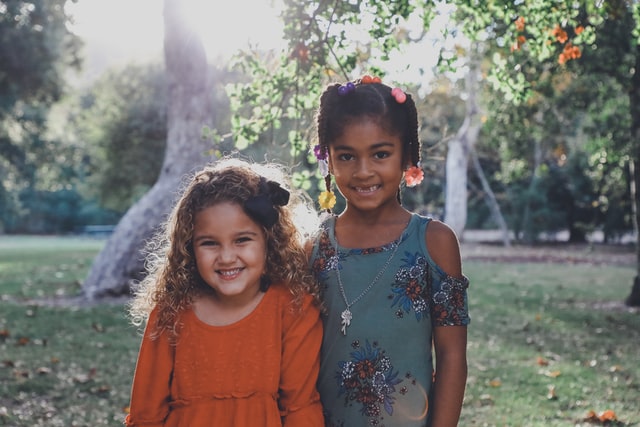5 Inclusive Resources for Families with Small Children

Our world contains nearly 8 billion people and each one has a different story. And while we may connect with many individuals on a daily basis, whether at school or work, it’s your responsibility as a parent to teach your children how to lead with inclusive actions. This way, they’ll be able to display acceptance and compassion to everyone.
Why Should You Discuss Tolerance?
Your kids may encounter hundreds of others throughout their childhood. These peers won’t exhibit the same features. Instead, they’ll each have their own distinct traits. It’s essential for you to show your children that these characteristics are mostly surface-level. For instance, an individual who uses a wheelchair isn’t inherently weaker than a non-disabled person. It’s necessary to highlight those truths so that your kids don’t make assumptions.
It’s natural for your kids to ask “why?” when they see someone who appears to be different from them. If you choose to discuss tolerance from the start, it’ll be easier for your children to accept people earlier rather than later. The sooner you can prevent prejudice, the better! As a result, they’ll grow up to become strong leaders who advocate for others—and society benefits from these practices.
Here are ways to have conversations about community with your children while at home.
1. A Family Is a Family: This book by Sara O’Leary covers several appropriate topics. One character talks about how they’re raised by their grandmother, while another talks about their two fathers. It’s essential to emphasize that every person should feel included and welcomed no matter their gender, race, sexuality, or ability. This idea extends to family life. You don’t need to have a mother and a father to experience love. A story like this one can help your kids understand different family dynamics—and why it’s okay not to have a nuclear family by definition.
2. Sesame Street: In 2017, Sesame Street introduced its newest cast member named Julia. The puppet has autism, which viewers see through her various behavioral quirks. Unfortunately, it’s not always easy to find kid-appropriate television shows that address disabilities head-on. Programs like Sesame Street can teach children what autism looks like for some individuals. They give non-disabled individuals a glimpse into Julia’s world. This information can help them understand kids that they already know from school. Your children can recognize that it’s not wrong to act “differently.” These lessons can also teach them how to interact with others more productively.
3. Raising White Kids: Bringing Up Children in a Racially Unjust America: It’s never too early to talk to your kids about race. If you’re white, you likely recognize racism but you’re not sure how to address it as an issue. Maybe you don’t “see color,” even though it’s vital to acknowledge African American identities. In any case, it’s essential to educate yourself alongside your children. There’s always room to grow, especially when it comes to relevant topics like race. “Raising White Kids: Bringing Up Children in a Racially Unjust America” by Jennifer Harvey teaches families how to foster anti-racist dialogue so that their kids can navigate a diverse world. This book can help you raise children that know how to be impactful allies for their black peers, as well as other people of color.
4. Learning Our LGBTs: Lindsey Amer created a YouTube channel called “Queer Kid Stuff” to teach young children about sexuality. In her series “Learning Our LGBTs,” Amer sits down to talk about each letter that makes up “LGBT.” She uses kid-friendly language and examples to make the point that we’re all people who deserve to be treated with respect. If you need a more care-free way to discuss these points, try Amer’s show. This series can also help parents, especially if you’re unsure about how to approach more complicated concepts like gender identity. Indeed, your kids may not need to know about these notions for a few more years, but it’s never too early to learn.
5. Teaching Young Children About Race: Here’s a beneficial resource if you need actionable tips on how to teach your children to become anti-biased. “Teaching Young Children About Race: A Guide for Parents and Teachers” includes points that translate directly to reality. Writers Louise Derman-Sparks and Julie Olsen Edwards pull excerpts from “Anti-Bias Education for Young Children & Ourselves” to help readers resist prejudice and discrimination.
It’s always important to learn, but it’s even more necessary to put your knowledge to work. It’s never too early or too late to learn about inclusion. Your children should know how to show accept all individuals, no matter their gender, race, sexuality, or ability.
